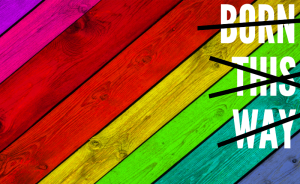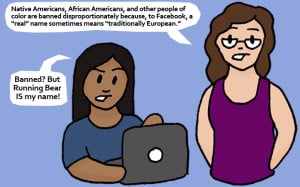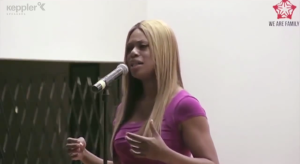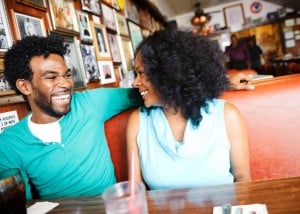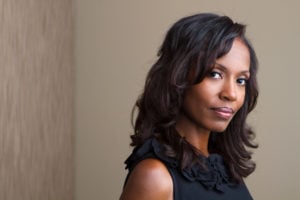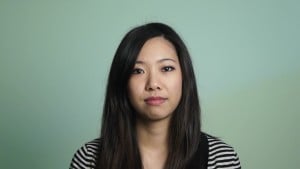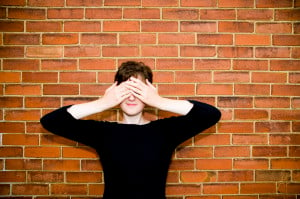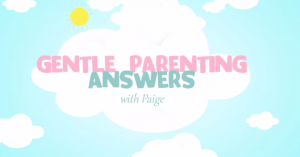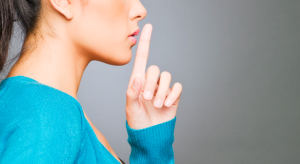Originally published on Race Baitr and republished here with the author’s permission.
I don’t remember the first time I found a boy attractive.
I do know that in my earliest memories, when I was four or five, this attraction felt natural and innate. I know, too, that there was a first time I found a girl attractive, and I know that in each of those first moments, there was nothing I would describe today as sexual.
I used to claim those memories of craving intimacy with other boys were proof of my timeless gayness. They are certainly proof of a kind of queerness existing within me at a very young age, if queerness is a non-normative way of relating to gender and intimacy.
But they did not erase the alternative, normative ways of relating to gender and intimacy which I overwhelmingly embraced, nor define on their own a complete “queer” identity. They certainly weren’t proof of any kind of sexuality, which I had no concept of at that age.
Cognizance of sexual attraction came later, but not much. I explored sexual touch and had my body explored by others perhaps far too early, with both boys and girls, my same age and old enough to know that I wasn’t old enough.
These acts coupled with, admittedly, a probable influence of biology and other things in my environment led me to a more complete understanding of my sexuality. Physical intimacy with male identified persons felt different, somehow. Terrifying and freeing.
Terrifying because they were freeing.
I was physically intimate with girls through high school. I didn’t disdain the corporal feeling, but by then I had begun to sense the freedom I experienced while intimate with boys was directly tied to a type of constraint I felt when I was with girls, shackling me to a particular kind of performance of masculinity that was violent to me.
My experience with masculinity was such that the most painful expressions of it were exemplified by a forced intimacy with women. The shackles broke, or at least were damaged, when I expressed a tenderness forbidden and denied to me in any healthy form my entire life prior – a tenderness between men. And I loved it.
And I hated it.
Or, at least, I hated what it would mean for my relationships with family and friends if they were to know. I hated that I could not find the same kind of freedom outside of it, thereby salvaging society’s contentment and my own safety. I hated that keeping it in “the closet” did not bring the same freedom, that it was refused to me if I did not brand myself “different.”
But I loved it, too, and more than I hated those things. And so I chose to brand myself different.
I chose to be queer.
Perhaps now is a good time to differentiate between “queerness” and “gayness” and then to also show how they might converge. Queer theory has always positioned queerness in opposition to rigidity and gender essentialism.
As Eve Sedwick explains in Tendencies, queer can refer to “the open mesh of possibilities, gaps, overlaps, dissonances and resonances, lapses and excesses of meaning when the constituent elements of anyone’s gender, of anyone’s sexuality aren’t made (or can’t be made) to signify monolithically.”
It can mean homosexuality and not. It can be gayness one day and something else the next. It is purposefully open to fluidity. It is amenable to choice, and that’s why I find it so fitting.
That does not mean I can not be identified by how I choose intimacy with men – I can. To my knowledge, I have not been with a woman since high school, and I may never be again. I am not bisexual.
My queerness is for men, though it is only guided by innate sexual attractions and desires, not dragged along forcefully, and relies less on their status as “men” as it does with what “man” means to society.
It is not simply a want to be penetrated by or to penetrate other men, but also a want to experience a tenderness I was told I should never know, and it is to refuse to sacrifice that to the world just because it demands I do.
Tenderness between men was a rarity in my home. There was love, yes, and much of it, but a stoic, touch-less, robotic love. Where my mother might hug away my tears, my father combated them by attempting to give his boys the tools to “man up.” Where he’d tell how proud he was of our accomplishments, she’d tell the world how much she loved her children.
My home, though, was simply an odd microcosm of the world we lived in, where not often did I see men embrace, men comfort one another, men love one another without filter.
It was a place where male friends were fags if we spent too much time together and weak if we showed anyone we wanted to. It was a place where you could fix all of that if you could just claim a girl and do with her those things instead.
Until you stepped out of bounds again and embraced too tightly or too long or smiled at a boy a smile too big. Stepping back in bounds, to me, was stepping back into their rules. So I stay out.
A common refrain in the movement resistant to the idea of choosing to be gay is the question: “In a world where there is so much violence against gay people, why would anyone choose to be?”
Why would, in the face of backlash, in the face of death, in the face of confrontations with family which, in my case, led to an end to crucial financial support, might I?
But this question relies on an unwarranted assumption fallacy that denies the possibility that there are benefits to queerness that might override its downsides.
It reduces gayness to a carceral identity, only differentiated from straightness in that it is oppressed, violated and attacked, and is based on the idea that everyone covets normativity.
Sometimes, it seems what is meant by “being gay is not a choice,” is that the love, joy and beauty in queerness is nothing to anyone compared to its traumas.
But what of the freedom that lies in queerness? What of its tenderness? I know them well.
What of the vulnerability I’d never experienced before? What of love and the rejection of its restriction simply because of how the body within which it comes is perceived? How can you say I should not find power in that just because the world does not want me to? I do.
There is a Hindu myth that is especially significant in the Hare Krsna religion I grew up practicing called The Mahabharata. In it, the climactic incident, as well as the foundation for one of the cardinal scriptures, The Bhagavad Gita, is a war between a group of brothers who were banished from their kingdoms and their cousins who cheated them out of their thrones.
One of the brothers cannot bring himself to fight his family, people whom he has grown up loving, people who raised and groomed him, explaining that he would rather give up his right to the throne than be the cause of their pain, even though they would rule with a violent hand and oppress the masses.
The Bhagavad Gita professes to be the words of God that convince this brother that he must choose his duty to fight and liberate his people, he must choose to demand what is rightfully his, above his fears, above the possibility of losing and dying, above the possibility of hurting or killing, because it is the right thing to do.
At 18, not long after starting my first relationship with a man, I had a verse tattooed on my rib cage from the Gita: “Give up this weakness of heart, and arise.”
Fortunately, killing has not been a question for me, but my queerness is also a fight. Queerness is a resistance. It is a battle reluctantly waged because the struggle is often similarly against loved family and community. But in my position, with the relationship I developed with masculinity and gender, it is the right thing to do. My freedom is rightfully mine, and demanding it was a choice I made, and one I’d make again.
As Darnell L. Moore acknowledges in What If I Chose to Be Gay? Or, Why Herman Cain Might Be onto Something, “’Choice’ is dangerous language because it reeks of a dangerous type of moralism, at least the kind that conservatives like to rely on to support their ideas of family and ‘right’ relationship between humans and God. But progressives must name and offer new and varied definitions of ‘family,’ ‘friendship,’ and ‘relationship.’”
I would add that more dangerous than the moral dilemma inherent to the word “choice” is the suggestion that if it means there is a right and wrong, morality must fall on the side of what queerantagonists decide it to be — that a choice to be queer is somehow lesser than a choice to be straight because God says so.
I say their God is wrong. I say if there were two choices, mine is still right.
I say that having a choice does not mean having just two choices, nor does it mean my choice is right for everyone.
I say we need to give space for those who have come to their queerness, and their gayness too, in various ways, and give space to love queerness enough to admit it is worthy of being sought.
Of course, the entire reality of choice is debated among scientists – and there is evidence to at least suggest that “random (neurons) firing, or noise, may even be the carrier upon which our consciousness rides, in the same way that radio static is used to carry a radio station,” and my mind isn’t scientific enough to comprehend what that all means.
Regardless, the option of freedom from normative sexuality is not a faulty option simply because it is wrapped within an oppressed identity, and I’d no sooner give up my queerness for straightness than I would Blackness for whiteness.
My queerness is a way of loving I’d want to choose, even if that were impossible, and I couldn’t be happier with having it.
[do_widget id=’text-101′]
Hari Ziyad is a Contributing Writer for Everyday Feminism and a Brooklyn-based storyteller. They are the Editor in Chief of RaceBaitR, a space dedicated to imagining and working toward a world outside of the white supremacist cisheteropatriarchal capitalistic gaze, and their work has been featured on Gawker, The Guardian, Out, Ebony, Mic, Colorlines, Paste Magazine, Black Girl Dangerous, Young Colored and Angry, The Feminist Wire, and The Each Other Project. They are also an assistant editor for Vinyl Poetry & Prose. You can find them (mostly) ignoring racists on Twitter @RaceBaitR and Facebook.
Search our 3000+ articles!
Read our articles about:
Our online racial justice training
Used by hundreds of universities, non-profits, and businesses.
Click to learn more


